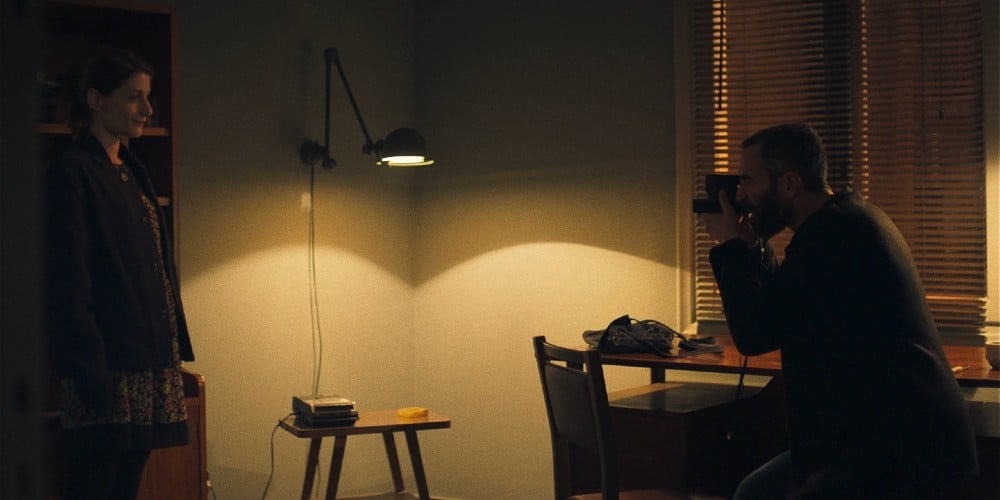Read also:
How to Watch FX Live Without CableHow To Watch AMC Without CableHow to Watch ABC Without CableHow to Watch Paramount Network Without CableApples’ memory-destroying pandemic proves a juicy, multilayered vehicle for its musings.
Apples opens with a series of thuds. With each one, we move in until we’re close-up on details. These are little seeds of a world. Such is the process through which director Christos Nikou peels back the skin of his story. He repeatedly plants tiny granular clues that one would be tempted to spit out and dismiss, but which make all the difference to the growth of the narrative.
The thuds we hear are Aris (Aris Servetalis) banging his head against the wall. Feeling dejected, he shuffles onto the street. Though it may look similar to ours, once outside, Nikou immediately begins planting his peripheral hints that there’s something surreal about this world. An unknown virus is creeping through this reality, causing people to develop amnesia. Society is slowly setting adrift amongst itself.
As sure as there’s a crisis, there’s government bureaucracy. Aris is taken in, documented, and processed by the hospital. After a series of tests, the doctors diagnose him with the same incurable disease and set him aside to be claimed by friends or family. When no one comes to “claim” him, he’s ushered into the “New Life Program.”

The government has designed this program to help victims of this disease adapt to their new reality. Given a tape player with instructions and a Polaroid camera to document their progress, patients are given a series of tasks to complete. These social errands should, according to the nameless physicians in charge (Anna Kalaitzidou & Argyris Bakirtzis), build a new life and identity.
During these tasks, he encounters Anna (Sofia Georgovassili), a woman in the same program for “unclaimed people.” Their two form a fleeting yet affirming bond that triggers something inside Aris’ spirit. The most important thing he remembers is that life is like an apple: sweet and delicate with an unshakeable core.
Servetalis is perfectly calibrated to play Aris. It’s a difficult task to achieve the level of detachment and disaffection required to play this role, yet Servetalis peels back the skin with ease. His Aris is appropriately aloof, guarded, and empty, simulating a void that fits perfectly into the story the director is trying to tell.

Apples is a very cerebral tale. Christos Nikou’s style is dry and contemplative, making for melancholy surrealism whose power doesn’t quite hit until the credits roll. Apples doesn’t reach “great pith and moment,” rarely are there moments that break out of its droll atmosphere. The film risks becoming too contemplative to be memorable. But if you understand the flavor profile of the apple before you bite, you’ll enjoy the complexity much more.
During his “processing,” Aris goes through a series of tests to determine if he has amnesia. After the memory test, there’s a peculiar cultural exam in which he must match music to the cultural context. Not only are Aris’ mismatches telling, but so are his options. Amongst the Jingle Bells and Swan Lake Suite, there isn’t a single traditional Greek choice. Cultural identity is solely determined and remembered through a Northern European lens.

Such a cultural splitting surely leads to a schism of self. But Nikou isn’t interested in diagnosing and pathologizing the unknown amnesia virus. Apples is about building and navigating a world that’s collectively adrift. As we approach the core of the story, you may notice there are some delicious wrinkles in the flesh of this reality, where some things don’t seem to add up.
The pleasure of Apples lies in being able to savor the sheen of a deceptively simple story and then bite into the delicious puzzle Christos Nikou has planted inside. Though there are morsels of lethargy as the pieces are set in place, once the seeds have sprouted, this becomes an unforgettable tale of memory, identity, and the fruits of selfhood.
Apples is now playing in theaters.